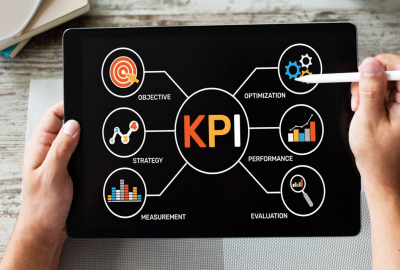Search engine optimization (SEO) and social media are two major focuses of digital marketing companies these days.
Both of these industries have grown and matured quite a bit over the years side by side, and have a lot in common. For example, both SEO and social media marketing aim at reaching and connecting with your potential customer.
In addition to that, SEO and social media have access to a huge amount of marketing data.
You need to use this data to grow and inform your company’s decision making.
Today we’re taking a look at how you can better understand and serve your customers by combining the potential of SEO and social media marketing.
Create Link Opportunities
The number one opportunity for social media to help boost SEO is also the hardest – Using social media to promote your content.
It isn’t particularly hard to implement, but its difficulty is on the recipient’s side.
Site owners and content creators can’t link to content they don’t know about. It never ceases to amaze, all the great content that gets little or no social promotion.
Organic and paid social promotions are not the only ways to promote good content you’ve created, but they should always be in the mix.
If it’s good enough it will be cited and linked to a blog post with decent traffic.
The basic principle here is that people can’t link to something they don’t know about, and social media is still an important way to let content creators know that what you’ve got is link-worthy.
Increase Positive Brand Mentions
At Pubcon Pro 2017, Google’s Gary Illyes talked about how Google might use online mentions of a brand.
He said if a particular brand, currently unrecognized by Google, started getting a lot of mentions online, it could cause Google to view them as an “entity”. In other words, something that deserved attention.
“The context in which you engage online, and how people talk about you online, actually can impact what you rank for,” Illyes said.
Notice the key phrase there: not how high you rank for something, but “what you rank for.”
In other words, there might be queries for which you don’t currently rank, but via online mentions, Google realises people see you as relevant for those queries.
Do what you can to help “fan the flames” of positive mentions of your brand on social media (as well as other places such as public forums).
How do you do this?
- Build a growing audience of true brand fans on social media.
- Encourage them to talk about your brand online.
Social Media Helps Build Authority
Search engines give a lot of weight to a website’s authority, making it a critical SEO factor to focus on.
In the eyes of Google, if your page or domain has a high value, it has high authority. This gives it a better chance to rank above sites with less authority.
Unfortunately, the authority of a webpage grows over time. This means a progression, but potentially long haul.
As you keep publishing top-notch content and gain more relevant backlinks, your authority keeps growing. If your content is valuable, it gives your audience what they’re looking for. This, in turn, earns backlinks, giving you a number of positive votes.
How can social media help?
Back when social media didn’t exist, the link-building world was different.
Today, you can’t ignore social media when talking about building backlinks.
Why? A massive amount of content on the web is distributed via social media.
Social media is the biggest content distribution engine. This means your influence on social media has a direct impact on your level of authority.
Build an engaged network
By focusing on building an engaged network of social media followers, your content has more relevant places to live.
For instance, if you create content about Yoga and get backlinks from blogs that specifically write about Yoga, you get more brownie points from Google and other search engines.
They’ll know that you’re publishing content that is reaching a relevant audience.
Build a Strong Audience or Following
There’s a lot of scope to connect with your audience on social media in 2020. Using social media you can easier than ever with what your consumers are interested in and on their level.
Because the barriers of communication are more streamlined you can talk with your customers in a frank and honest way. Something not possible in the past.
Why not discuss your content plans with your audience?
Set up a live event on Twitter or a private Zoom event. Then use the transcript to publish a natural language-optimized article on your site. This would organically engage many of your social media followers in contributing instant feedback.
Tag people you want to hear from or ideas you want to hear about. Twitter comments can be quite valuable when it comes to collecting feedback and opinions.
You could also try setting up a poll. This focuses your audience’s attention and gets an interesting angle on what you’re looking to pursue.
Conclusion
By now it should be plain to see that social media and SEO can work very well in tandem. While social media might not always have a huge impact on the ever-present ‘google algorithm’, that doesn’t mean it can’t help boost posts and stimulate curiosity in your readership.






